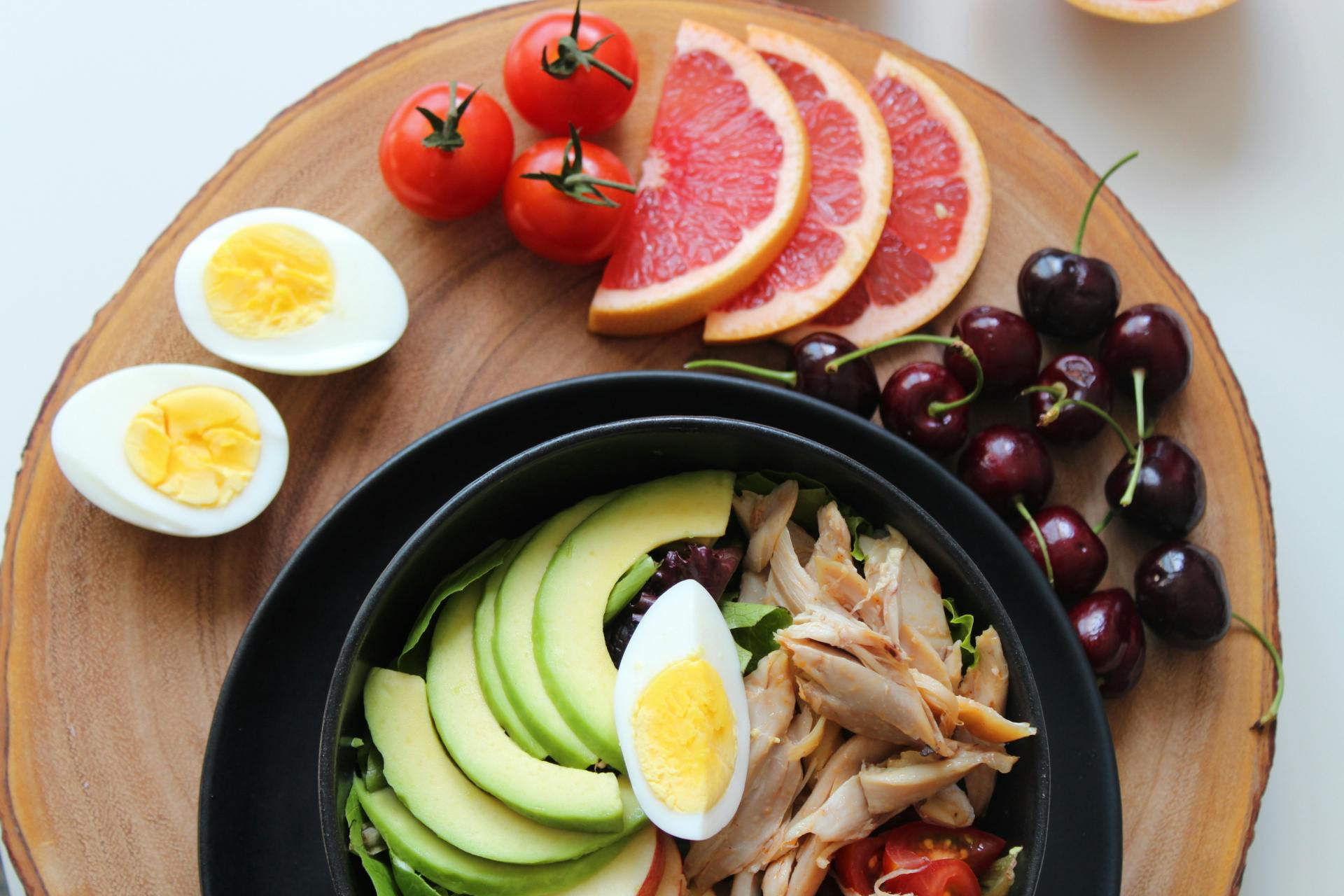Embark on a unique journey to finesse your understanding of the ketogenic lifestyle with the “Special Keto Quiz: Identify Ketogenic Foods”. This article invites you on an exciting adventure where you’ll get to test your diet knowledge through engaging quizzes and challenges. Positioned perfectly for those eager to embrace the low-carb way of life, it serves as a delightful mix of learning and fun. Prepare to deepen your comprehension, tackle keto myths, discover nutritional insights, and implement diet principles step-by-step. Alongside, you’ll find handy tips to overcome common hurdles, track your progress, and enrich your keto journey with astonishing facts and trivia. Whether you’re a novice or a seasoned keto enthusiast, this captivating content promises to enhance your dietary experience, making every step of your low-carb journey an engaging and educational one.
Claim Your Complimentary Keto Recipe Book!
Understanding the Basics of Ketogenic Foods
Embarking on a keto journey can open up a world of health benefits and culinary adventures for you. Let’s start by decoding the fundamentals of the ketogenic diet, ensuring you’re well-equipped with essential knowledge to navigate this low-carb path successfully.
Definition and core principles of a keto diet
At its heart, the ketogenic (or keto) diet focuses on consuming high-fat, moderate-protein, and low-carbohydrate foods. This dietary approach aims to shift your body’s primary fuel source from glucose, derived from carbs, to ketones, produced by the metabolism of fats. It’s like flipping a switch in your metabolism, one that could lead to weight loss, improved energy levels, and other health benefits.
Macronutrient ratios: Fats, Proteins, and Carbs
A typical keto macronutrient ratio might look something like this: 70-75% fat, 20-25% protein, and 5-10% carbohydrates. Balancing these macros is vital to enter and maintain a state of ketosis, where your body efficiently burns fat for energy. Remember, though, individual needs may vary, so fine-tuning your intake to match your goals and lifestyle is key.
The role of ketosis in weight loss and health
Ketosis is the golden state of the keto diet, where fat becomes your prime energy source. This metabolic state has not only been linked to weight loss but also to potential improvements in blood sugar levels, brain function, and certain markers of heart health. Being in ketosis also means you’re likely to experience less hunger, lending a helping hand to your weight loss efforts.
Common misconceptions about ketogenic foods
You might hear myths like “eating too much protein will knock you out of ketosis” or “keto means unlimited bacon and cheese.” The truth is, maintaining a balanced, nutrient-dense diet matters most. Overeating anything, even fats, can hinder your progress, and quality, variety, and nutrition should guide your food choices.
Categories of Ketogenic Foods
Now that we’ve covered the basics, let’s explore the diverse world of keto-friendly foods. This isn’t just about what you can eat; it’s about curating a flavorful, nutritious menu that aligns with the keto ethos.
Healthy fats: Avocado, Coconut oil, Butter
Healthy fats are the linchpins of the ketogenic diet. Avocados are not only rich in monounsaturated fats but also pack a punch of vitamins and minerals. Coconut oil contains medium-chain triglycerides (MCTs), directly transported to the liver to be turned into ketones. Lastly, butter, especially from grass-fed cows, provides quality fats and vitamin K2, augmenting your keto journey with flavor and nutrition.
Proteins: Grass-fed meat, Wild-caught fish, Eggs
Opting for high-quality proteins ensures you’re getting both the necessary nutrients and the right balance of fatty acids. Grass-fed meats are lower in unhealthy fats and higher in omega-3s compared to their grain-fed counterparts. Wild-caught fish, rich in omega-3 fatty acids, support heart and brain health. Eggs are keto superstars, offering a perfect blend of fat, protein, and vitamins, while being extremely versatile.
Low-carb vegetables: Leafy greens, Cruciferous vegetables
While carbs need to be limited, vegetables are indispensable for their fiber, vitamins, and minerals. Leafy greens like spinach and kale are low in carbs but high in iron and calcium. Cruciferous vegetables, such as broccoli and cauliflower, are excellent for adding bulk to meals without a carb overload, also offering a robust nutrient profile.
Nuts and seeds: Almonds, Chia seeds, Flaxseeds
Nuts and seeds are great for snacking or adding crunch to dishes, providing healthy fats, fiber, and a slew of minerals. Almonds, chia seeds, and flaxseeds are among the best options, each with unique health benefits. Chia and flaxseeds, in particular, are high in omega-3 fats and can help maintain digestive health.

This image is property of images.pexels.com.
Claim Your Complimentary Keto Recipe Book!
Quiz: Identifying True Keto-Friendly Foods
Let’s put your knowledge to the test with some fun quizzes designed to deepen your understanding of keto-friendly foods and debunk common myths.
Multiple choice questions on keto foods
-
Which of the following oils is considered the best option for keto?
- a) Vegetable oil
- b) Coconut oil
- c) Canola oil
- d) None of the above
-
What is the optimal source of protein for a ketogenic diet?
- a) Soy protein isolates
- b) Grass-fed beef
- c) Lean chicken breast
- d) All of the above
True or False: Common keto food myths
- Eating bacon every day is recommended on a keto diet. (False)
- Avocados are too high in carbs for a keto diet. (False)
Match the food to its category: Fat, Protein, or Carbohydrate
- Salmon – Protein
- Olive oil – Fat
- Broccoli – Carbohydrate
Keto Diet Food Preparation and Cooking Tips
Crafting delectable keto meals that meet your macros doesn’t have to be daunting. With a few tips and tricks, you’ll be whipping up satisfying dishes in no time.
Meal planning for a ketogenic diet
Start with planning your meals around your protein source, then add in healthy fats and low-carb vegetables. Keeping a weekly meal plan can help you avoid the temptation of off-plan foods and make grocery shopping a breeze.
Keto cooking techniques and alternatives
Explore keto alternatives for high-carb favorites, like cauliflower rice instead of regular rice or zucchini noodles in place of pasta. Embrace slow-cooking methods to tenderize leaner cuts of meat or quick searing for fatty fish to preserve omega-3s.
Must-have ingredients for keto recipes
Stocking your pantry with keto staples like almond flour, coconut oil, and erythritol (a sugar alcohol) can empower you to create diverse and delicious keto-friendly dishes. Fresh herbs and spices are also key to enhancing flavor without adding carbs.
Avoiding common kitchen pitfalls in keto cooking
One common mistake is not balancing macros properly—too much protein can interfere with ketosis, just as too many carbs can. Mind the hidden carbs in sauces and dressings, and remember to incorporate enough fibrous veggies to maintain digestive health.

This image is property of images.pexels.com.
Navigating Keto Challenges
Transitioning to and maintaining a keto lifestyle comes with its share of challenges, but with the right strategies, you can overcome them and thrive on this rewarding diet.
Dealing with keto flu and how to overcome it
The “keto flu” — characterized by fatigue, headaches, and irritability — can occur as your body adapts to burning fat for fuel. Staying hydrated and increasing your intake of electrolytes can help alleviate these symptoms within a few days.
Social settings and eating out on a keto diet
When dining out, opt for dishes that center around protein and vegetables, and don’t be afraid to ask for modifications. At social gatherings, bringing a keto-friendly dish or snack can ensure you have a suitable option while still enjoying the company of friends and family.
Managing cravings and cheat days
Cravings can be a hurdle, but finding keto-friendly alternatives for your favorite treats can satisfy those desires without derailing your progress. If you do decide to indulge in a cheat meal, don’t beat yourself up — just make sure to jump back on track with your next meal.
Adapting the keto diet for vegetarian and vegan lifestyles
A vegetarian or vegan keto diet is entirely achievable with a focus on low-carb plant foods, nuts, seeds, and proteins like tempeh or high-fat dairy alternatives for vegetarians. Planning is crucial to ensure adequate nutrient intake.
Misleading Foods on a Ketogenic Diet
Navigating what to eat can sometimes feel like a minefield, especially with foods that appear keto-friendly but may actually impede your progress.
Foods that seem keto-friendly but aren’t
Some foods, like certain nuts or dairy products, might fit the keto mold at a glance but come packed with more carbs than you’d expect. Attention to detail and portion control is key.
Understanding net carbs in processed foods
Net carbs are total carbs minus fiber and sometimes sugar alcohols, giving you a more accurate carb count that impacts ketosis. However, not all sugar alcohols are created equal, and some may affect blood sugar, so reading labels carefully is essential.
The impact of sugar alcohols and artificial sweeteners
While many sugar alcohols and artificial sweeteners are considered keto-friendly, individual tolerance can vary. Some people may experience an insulin response or gastrointestinal discomfort, so monitoring your body’s reaction is wise.
Reading labels: Hidden carbs and what to look for
Knowing how to read food labels is crucial. Look out for added sugars, starches, and filler ingredients that can sneakily increase carb counts. Stick to whole, minimally processed foods whenever possible for a clear idea of what you’re consuming.

This image is property of images.pexels.com.
Keto Progress Tracking Methods
Keeping tabs on your keto journey allows you to celebrate victories, both big and small, and adjust your plan as needed for continued success.
Setting realistic keto goals and expectations
Identify clear, achievable goals beyond just weight loss, like improving your energy levels or reducing sugar cravings. Celebrate non-scale victories, such as better fitting clothes or improved blood work results, to stay motivated.
Keeping a food and progress diary
Documenting your daily intake and how it affects your mood, energy, and overall well-being can provide valuable insights into what works best for your body. It can also help identify patterns or foods that may hinder your progress.
Measuring ketosis: Testing methods and what they mean
Various methods, including blood, breath, and urine tests, can measure ketone levels to confirm you’re in ketosis. Each has its pros and cons, so choose the one that best fits your needs and goals.
Reflecting on progress and adjusting the diet as needed
Regular reflection on your journey allows you to assess what’s working and what’s not. Don’t hesitate to tweak your macros, experiment with intermittent fasting, or incorporate new keto-friendly foods to keep your diet enjoyable and effective.
Engaging Facts and Trivia about Ketogenic Diet
Exploring the broader aspects of the keto lifestyle can add depth to your dieting experience and keep you engaged over the long term.
Historical origins of the ketogenic diet
Originally developed in the 1920s as a treatment for epilepsy, the ketogenic diet has a fascinating history. Its therapeutic applications provided a springboard into the mainstream, where it has been embraced for its weight loss and health benefits.
Famous personalities who follow the keto lifestyle
From celebrities to athletes, many have turned to keto for its performance-enhancing and weight-management perks. Their stories can serve as inspiration and testament to the diet’s potential impact on well-being and fitness.
Surprising benefits of keto beyond weight loss
Beyond shedding pounds, adherents often report improved mental clarity, enhanced skin health, and stabilization of blood sugar levels. The potential for reducing symptoms of certain neurological disorders and its application in cancer therapy are also areas of ongoing research.
Global keto trends and its adoption around the world
The keto diet has seen a surge in popularity globally, leading to the proliferation of keto-friendly products, restaurants, and online communities. Its international appeal underscores the universal desire for healthier living and the diverse ways cultures adapt the keto principles to their cuisines.
Participate and Share Your Keto Quiz Results
Ready to share your newfound knowledge and inspire others on their keto journey? Here’s how you can connect and spread the keto love.
How to share your quiz results on social media
Whether you aced the quiz or learned something new, sharing your results can spark curiosity and encourage others to explore the ketogenic lifestyle. Tag friends who might enjoy the challenge or could use a little nudge towards healthier eating habits.
Joining keto communities and forums
Diving into online keto communities can provide a wealth of support, recipes, and tips from fellow keto enthusiasts. It’s a great way to stay motivated, troubleshoot common issues, and celebrate your milestones with others who understand the journey.
Engaging with fellow keto enthusiasts
Whether online or in-person, connecting with others following the keto diet can enrich your experience. Exchange ideas, share successes, and offer encouragement to keep each other motivated towards achieving individual goals.
Challenges to invite friends and family to take the quiz
Why not turn your keto knowledge into a fun game? Challenge friends and family to take the quiz, helping them learn more about the diet in a playful and interactive way. It’s a win-win; they get educated, and you get a keto buddy.
Fun and Informative Keto Quizzes for Continuous Learning
Continuous learning keeps the keto lifestyle fresh and engaging. Delve into more quizzes to test your knowledge, challenge your habits, and discover new facets of the ketogenic diet.
Keto facts vs. myths quiz
Separate fact from fiction with quizzes designed to debunk common keto myths. From “all fats are created equal” to “calories don’t matter on keto,” educating yourself on the nuances can empower your diet choices.
Recipe ingredient match quiz
Test your skills in identifying which ingredients fit within a keto framework and which don’t. It’s a practical way to enhance your meal planning capabilities and ensure you’re staying true to keto principles.
Nutritional science behind keto quiz
Dive deeper into the science of ketosis, understanding how different nutrients affect your body and how to optimize your diet for peak performance and health.
Advanced ketogenic knowledge test
For those ready to up their game, explore advanced topics in ketogenic living. From cyclical keto diets to the impacts of stress and sleep on ketosis, there’s always more to learn and ways to grow in your keto journey.
By engaging with these quizzes and challenges, you’re not just testing your knowledge — you’re reinforcing the principles that make the ketogenic diet a rewarding and healthful choice. Keep learning, stay motivated, and embrace the journey towards a healthier, happier you.

